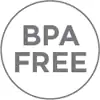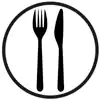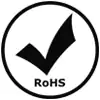- Back to homepage
- Environmental & Compliance
Environmental & Compliance
Certification and Compliance
Management systems and environmental legislations
Our certified management systems are:
 |
| FM 13143 |
We use BSI to regularly audit and certify our management systems.
Compliance with Environmental Legislations:-
Food contact safe products
- BPA free products (see 'BPA' section below)
- MiCWF – Materials in Contact With Food
Hazardous materials compliance
- REACh – Registration, Evaluation and Authorisation of Chemicals
- RoHS – Restriction of Hazardous Substances
Kenwood have been making safe products for over 60 years and we will continue to lead the way in making safe products that you and your families can be confident in.
 Bisphenol A (BPA)
Bisphenol A (BPA)
Bisphenol A (BPA)
What is BPA?
Bisphenol A (BPA) is a chemical that is used primarily in the manufacture of polycarbonate (PC) raw material plastic. PC is a plastic that is often used in mouldings for food packaging; for example in drinks bottles.
BPA however can on rare occasions be found in other plastic materials – this is why Kenwood check all plastic components in contact with food.
What is the concern about BPA?
BPA is a chemical that in sufficient doses can mimic the action of the human hormone oestrogen. This can cause health problems to humans.
When PC is manufactured the BPA content is consumed by the raw material manufacturing process, however small quantities of BPA can migrate from PC plastic over time, or when exposed to excessive heat or conditions outside of normal use. Many consumers are concerned about exposure to BPA, especially for infants, from this migrating, which has led to some countries already legislating about the levels of BPA in baby bottles.
What have Kenwood done about BPA?
- From the beginning of 2013 we have stopped using PC in all components in contact with food for all of our new products
- We test every plastic component that comes into contact with food to ensure that any migration falls below the accepted level before products are put on the market, a product will not be sold until we hold test reports that show no BPA is detected. These tests are carried out by specialised independent laboratories.
- We have management systems in place to regularly check food contact on our components, these include declarations for our supply chains, factory audits and on-going product surveillance testing
 Materials in Contact With Food
Materials in Contact With Food
Food contact legislations
What is Materials in Contact with Food?
Many of our products include parts that come into direct contact with food. Food contact legislations define the safe limits of migration of certain substances from these parts into the food.
What we do to control any migration of substances
- We test every component that comes into contact with food to ensure that the part complies with all applicable legislation before products are put on the market
- A product will not be sold until we hold test reports that show the parts PASS the food contact legislation for the market in which it will be sold
- These tests are done by specialised independent laboratories. The laboratories use scientific machines that very accurately check compliance so that when the test shows a PASS result we know we comply with the appropriate legislation
- We have management systems in place to regularly police food contact parts, these include declarations from our supply chains, factory audits and on-going product surveillance tests.

REACh and RoHS
Chemicals and hazardous substances legislation
What is REACh?
Registration, Evaluation and Authorisation of Chemicals legislation.
This legislation controls chemicals and substances. For our business it defines the safe levels of certain substances within the products, packaging and spare parts we place on the market.
What is RoHS?
Restriction of Hazardous Substances legislation.
This legislation restricts hazardous substances within the products we place on the market.
What we do to control substances
- We hold declarations from our supply chains to show that every product complies with REACh legislations before products are put on the market.
- We hold declarations from our supply chains to show that every component complies with RoHS legislation before products are put on the market.
- A product will not be sold until we hold test reports and or declarations that show the parts comply with both legislations.
- Tests are done by expert independent laboratories. The laboratories use scientific machines that very accurately check compliance so that when the test shows a PASS result we know we comply with the appropriate legislation.
- We have management systems in place to regularly police hazardous materials, these include declarations from our supply chains, factory audits and on-going product surveillance tests.
Delivery
Delivery within 3 to 10 business days
Easy Returns
30-day return policy
Payments
Secure payments
Delivery
Delivery within 3 to 10 business days
Easy Returns
30-day return policy
Payments
Secure payments
Want to mix with us?
Join our family and get 10% OFF your next purchase